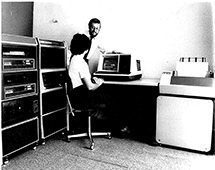
What more is CDS bringing to the market?
“We did become a little old-fashioned in the 90s but that was a salutary lesson and we’ll not get caught out again,” said Bill.
“We’ve now been here long enough to watch the tide go in and out on the industry,” Bill explained. “We’ve watched the majors retreat leaving distributors cast adrift or given their head – depending on your point of view. Acquisitions, disposals and mergers – all offer opportunities for people providing software and for new distributor start ups.”
“There’s a constant newness in this industry,” added Paul. “New clients bring different requirements giving the team a high degree of interest and challenge. We get plenty of suggestions about what the software should do. Some are rather individual and quirky so we distill these to the core requirement and produce a change that is universally compatible.
“We’re driving the paperless office forward. The level of integration across technologies continues to create more communication opportunities. For example smart phones and tablets synced to databases provide instant access to data, reports and other information, ideal for presentation at external meetings.”
“The scope of our application is increasing all the time. Over the past year, for example, we’ve been heavily engaged in retail operations. And, as our existing users look to broaden their operations, we will be following them,” said Bill.
CDS still retains interests in other sectors; in construction, CDS measurement software is used by quantity surveyors internationally, a drinks company uses its telesales software and work is done for occupational health & safety.
In a fitting tribute to Bill Lea’s 40 years in the software industry, asked why they had picked a relatively small software house, one of CDS’s clients outside fuel distribution said: “We know Bill Lea will see us through.”
